After the abrupt February 1 military coup d’état entered its third week, it remains a mystery and no one is quite sure where it is leading to. Numerous experts and analysts domestic and international alike have been speculating on how it will pan out differently, except for the common pessimistic view of spiraling violence, especially from the coup maker’s part, and gaining momentum each passing day.
Indeed, it is an uncharted political waters even for the coup maker, not to mention the Generation Z-led civil disobedience movement, combined with political defiance, which the rank and file of the population, including the Generation X and Y, have joined to reject the military takeover and the junta’s rule that comes with it.
“Generation X, the age cohort born before the 1980s but after the Baby Boomers; Generation Y, or Millennials, typically thought of as those born between 1984 and 1996; and Generation Z, those born after 1997, who are next to enter the workforce,” according to the report “A Survey of 19 Countries Shows How Generations X, Y, and Z Are — and Aren’t — Different,” written by Henrik Bresman and Vinika D. Rao, published by Harvard Business Review, on August 25, 2017.
Reasons given for the coup
The reason given by the Military or Tatmadaw is electoral-list irregularities which was said to be more than 10 million but with no hard evidence to back up the claim. The coup was undertaken as its repeated demand to investigate were rejected by the Union Election Commission (UEC) formed by the National League for Democracy (NLD), and also a proposal to hold special Union parliamentary session to discuss about the matter.
But the actual motive may be the Tatmadaw’s concern of “group survival” instinct and mentality; upholding “military supremacy” doctrine in political decision-making; Commander-in-Chief General Min Aung Hlaing’s personal ambition to be the head of state at any cost; angst of International Court of Justice, International Criminal Court and international ruling on his genocidal intent committed upon the Rohingya; afraid of losing ill-gotten accumulated wealth by plundering the country’s resources; and/or the combination of all the said factors.
In short, the supposed to be “fail-safe” mechanism vested in the military-drafted 2008 Constitution went wrong, or shall we say the existence of loop holes that the Tatmadaw has not thought about.
It has calculated that with the 25 percent allotted MP seats, including the rights to administer the home, defense and border affairs ministries, its proxy the Union Solidarity and Development Party (USDP) will be able to gain, at least 25 percent plus in the poll, so that the military bloc will be able to form government with the help of some party affiliations or splinter parties that belong to the military bloc. This way the opposition parties will be kept in check and the military bloc will be able to hold on to power continuously, perhaps somewhat like the Singapore’s People’s Action Party one party system, with small and weak opposition parties, that has been in power since the country’s inception, in 1954.
But the USDP could only gather 7 percent contested seats (5 percent of the overall total) in 2020, which would led the NLD to install president and government formation as it won the general elections on a landslide, with 83 percent, up from 79 percent in 2015 general elections, giving it 62 percent of seats in the Union Parliament.
For the Tatmadaw five year tenure of NLD government from 2016 to 2021 had already eroded its administrative hold such as losing the UEC and General Administration Department (GAD) because NLD has taken over. And if another five year of NLD rule were to continue, the military might have presumed its supremacy position will further be eroded and probably this has been one of crucial motive to stage the coup.
Not coup but caretaker argument
The coup maker wants to portray itself as acting according to the 2008 military-drafted Constitution and making use of the emergency rule provided by it. Thus, it is a legal “constitutional coup” so goes the argument.
But the problem lies in the procedure which isn’t a water-tight explanation, as the allowing of the emergency decree was signed by Myint Swe, an ex-general and first vice-president endorsed by the military, after installing him as acting president. The first president was Win Myint and second vice-president Henry Van Thio both from the NLD were detained following the coup by the junta.
Reportedly, the military threatened President Win Myint to sign the decree but he refused and said that they could kill him if they like but he wouldn’t sign it.
Because of this, the argument that the coup is legal and acting only under the emergency rule as a caretaker government isn’t convincing, even though there is a provision to do so, if the sitting president has willingly agreed and signed the decree.
Nevertheless, the junta maintained that it is not “an nar thein” but “an nar lwe” in Burmese, meaning: not “seizure of power or coup” but “power being transferred”. In other words, Tatmadaw is functioning under the military-drafted constitution of “emergency rule” because the NLD was about to grab the power through illegal means. It reasoned that the NLD misused its power to rig the poll with more than 10 million electoral-list irregularities, although to date it still can’t explain it in a concrete manner.
Going back from original reasoning
Tatmadaw originally said that its undertaking was not to nullify the November 8 election results but to investigate irregularities in certain areas only, reportedly to make the election free and fair in straighten the democratization process. But now the mass arrest of the NLD leaders and members in hundreds, including those it considered hostile to the military, raiding NLD offices, confiscating documents, and now declaring new election in one year, with the promise to hand over the power to the winner party, aren’t in tune with what it has stated from the outset.
It now seems the junta is out to destroy the NLD by disqualifying its influential leaders by slapping them with various petty crimes (like importing communication radio phones in the case of Aung San Suu Kyi; and violation of Covid-19 prevention law for President Win Mint). It might even abolish the party, once and for all, before the promised election within one year could be held. Very recently, Suu Kyi was slapped with another case using the same Covid-19 prevention law like President Win Myint.
Wooing the ethnic nationalities
The junta has been wooing the ethnic nationality parties (EPPs) and ethnic armed organizations (EAOs) to join its State Administration Council (SAC) since it came into existence after the coup.
So far, Padoh Mann Nyein Maung and ex-Karen National Union central committee member, Arakan National Party, Mon Unity Party and Karen People’s Party have been cooperating with the junta, while the majority have still not made commitment and some openly endorsed the anti-coup position of the public.
The seven-member Federal Political Negotiation Consultative Council has not made any comment but the Ta’ang National Liberation Army leaders made public that it endorsed the anti-coup position. So far Karen National Union (KNU), Restoration Council of Shan State (RCSS), and Kachin Independence Organization (KIO) either sympathized or condemned the coup.
While KNU and RCSS statements were straight forwardly condemning the coup, KIO just spelled out it endorsement of the anti-coup public campaign, without condemning the coup.
Arakan Army (AA) seems to be cooperating with the junta as the armed confrontation ceased starting November last year even before the November 8 general elections and the unofficial ceasefire holds on until today. Besides, in the aftermath of the November elections the Tatmadaw and AA proposed the NLD-led government to hold elections in the excluded 9 townships in Arakan State and also one township in Shan State, promising to guarantee the security. But the NLD government rejected the proposal.
A few days ago AA chief Tun Myat Naing talked to Chin Cable News where he said “for the ethnic nationalities whether you’re beaten with the red stick (meaning NLD regime) or the green stick (meaning military’s proxy party USDP or Tatmadaw in general) both hurts.”
He went on to say that if you cooperate with the powers that be, you could be well off and even further your rights of self-determination aspirations. He was clearly hinting at the United Wa State Army which has prospered and empowered into an admirable mini-state by cooperating with Burma’s then military government—the State Law and Order Restoration Council, in April 1989.
And to complicate the coup situation further, the RCSS and TNLA/Shan State Progress Party combined forces have been battling each other resulting in a dozen deaths, wounded and hundreds of IDPs fleeing their homes. In the mean time, RCSS reported that its troops have been attacked repeatedly by the Tatmadaw also, according to the Shan sources.
Appeal to US and protesting China and Russia
Hundreds of demonstrators rallied in front of US, China and Russia embassies recently. The US was appealed to intervene, stop the coup makers and reinstall the election winning party, while China was asked to condemn the junta, refrain from helping the junta, and Russia not to exercise its veto powers in the United Nation Security Council to protect the junta, which also was directed at China.
Situation report of OCHA
On February 15, United Nations Office for the Coordination of Humanitarian Affairs (OCHA) report outlined 7 points of what will or will not happen in the near future in Burma as follows.
- Coordinated action in the name of the UN is all but impossible
- Targeted sanctions suggested as renewed separatist action becomes all but certain
- Any international support for Suu Kyi or the NLD is likely to be far less vocal and on a far smaller scale
- The Tatmadaw’s seizure of power is likely to provoke gradually escalating resistance
- Further wide scale arrests of opposition figures and local NLD members will increase
- The Tatmadaw will continue to censor the internet with escalating “blackouts”
- COVID-19 will see a resurgence in Myanmar, leading to a wider scale infection rate
Scenarios forecast by the report writes:
- Violence and protests will escalate within the next few weeks, leading to further oppressive moves by the security forces. This will see arrests spread to local INGO staff, and also local journalists.
- The Tatmadaw will look to “divide and rule” Myanmar’s political parties, with increasing numbers of ethnic political parties -such as the Kayin People’s Party (KPP)or the Mon Unity Party (MUP) –opting to join the State Administration Council (SAC – administration of the new military government).
- INGOs will find it increasingly difficult to ensure apolitical distribution of humanitarian supplies / aid as the Tatmadaw widen suppression tactics.
Analysis
The present situation is the junta will be banking on its staying power, trying to identify strike leaders leading the rallies and those adhering to civil disobedience movement to cripple its administration by trying to arrest them, including installing gadgets to implement cyber security law, which is expected to be promulgated.
The opposition public, spearheaded by the Generation Z will also go on striking banking on the hope that the civil disobedience movement will work, while appealing for international humanitarian intervention, especially to the US and the West.
On the strategic level, the junta will aim for legitimacy by trying to sell its guided disciplined democracy while holding on to the emergency rule for as long as possible. But it will be an uphill battle for the moment as the International Monetary Fund, which the US controls the dominant shareholding and already slapped the coup generals with sanctions, is not decided whether or not to recognize the junta.
Equally it is possible if the protest dissipate for any reason, it could rebound back to near business-as-usual, if not totally, with the help of China and Russia and perhaps ASEAN, under the pretext of coxing the junta to relinquish power or pushing to hold early election as promised.
As for the opposition, it will have to deny the junta legitimacy and demand the release of all political prisoners and the handover of the power to elected party.
It is hard to imagine how this relatively new type of confrontation, Generation Z versus coup maker that wants to be legal and thus acting with constraint, will roll out. Many experts and observers are of the opinion, the junta will prevail and the people will be cowed again as the previous successive juntas had done in 1962, 1988 and 2007.
Meanwhile with the escalation of violence, due to the recent crackdowns by the security forces, especially in Mandalay and to a lesser extend Myitkyina, it may be only a matter of time that the junta will tighten the screw more.
The prognoses are not good and the repression is more likely to follow than maintaining the low key Tatmadaw involvement in controlling the striking mass, as it is now the case.
But while the odds are not in the people’s favor, it is also not that pessimistic as the some observers would like to portray. In the end, the people have already shown that they want democracy and federalism and not military dictatorship, with day in, day out mass demonstrations countrywide. And as there is a saying, “Every nation gets the government it deserves,” the people’s aspirations will definitely prevail. We don’t even need to doubt about it.





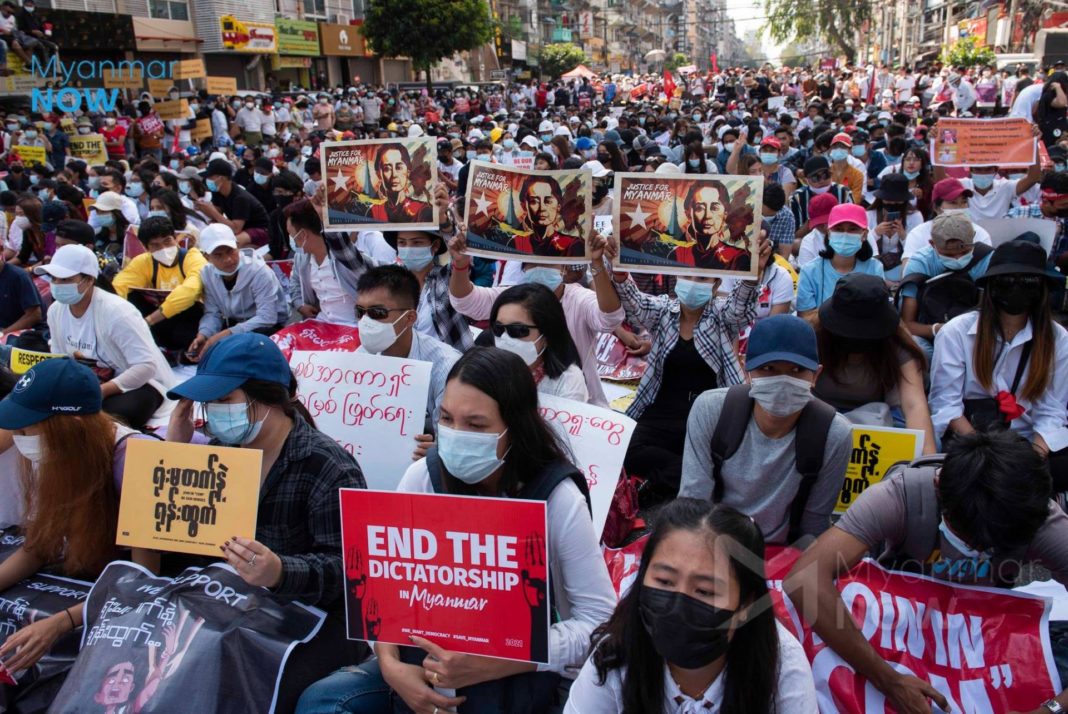
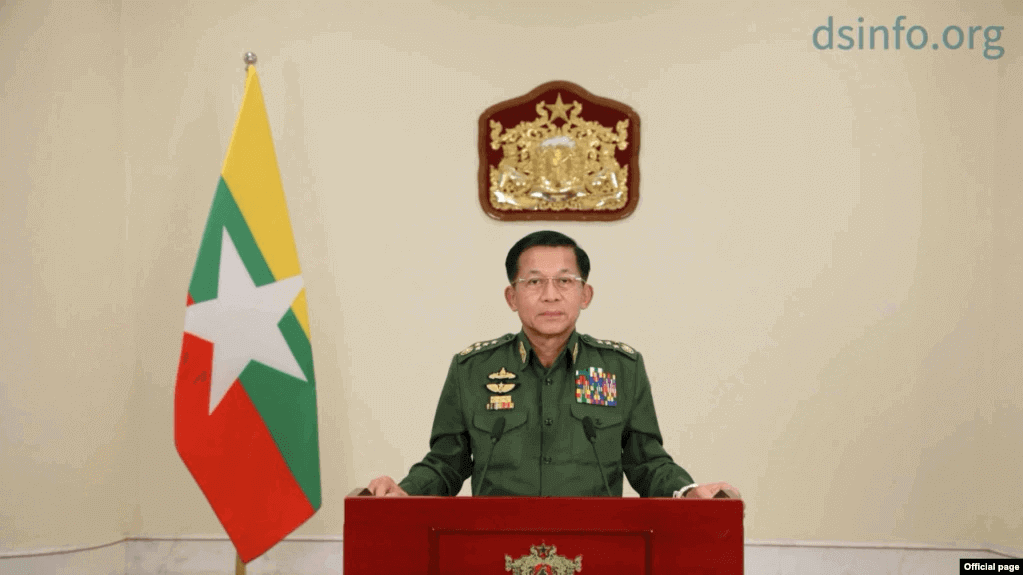
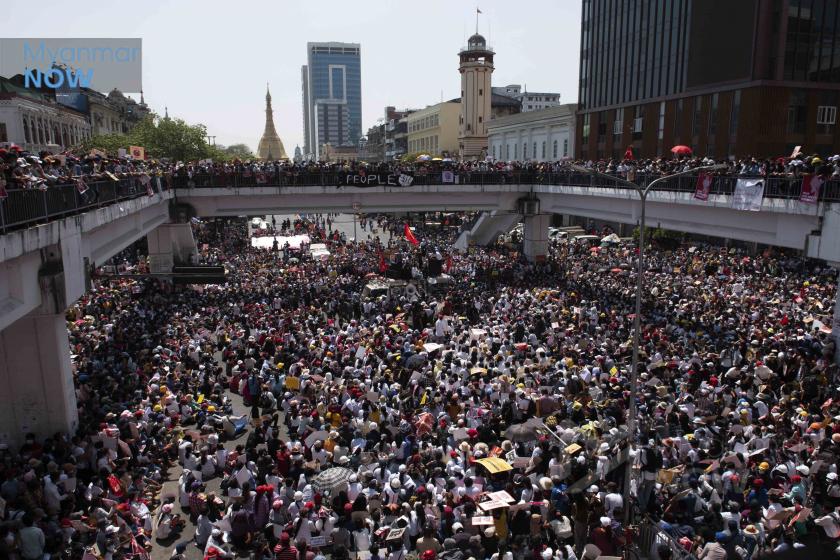
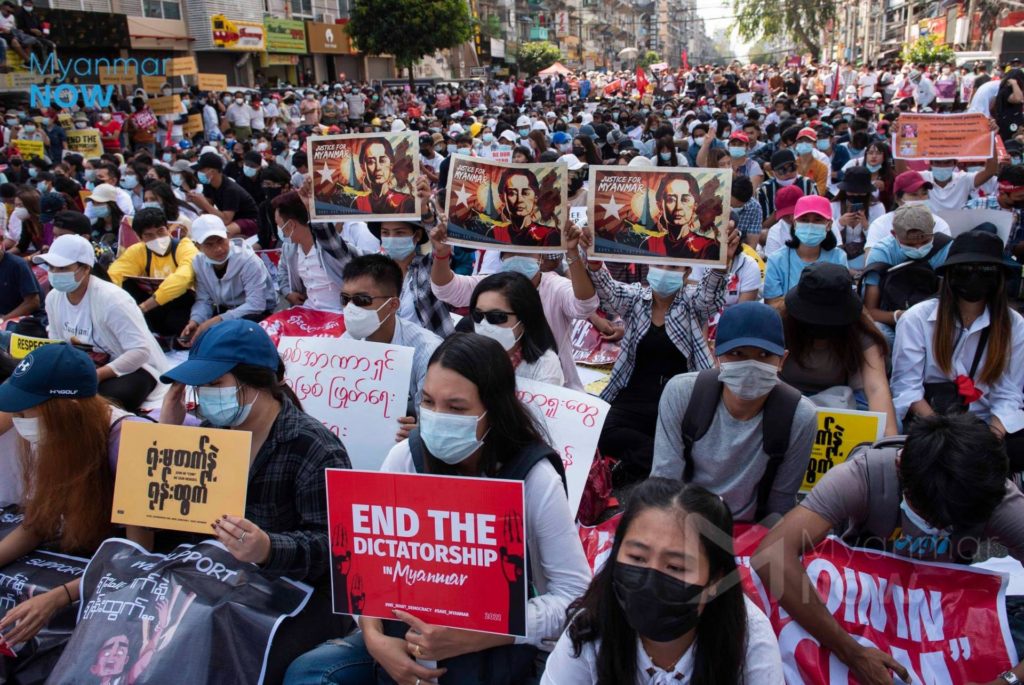
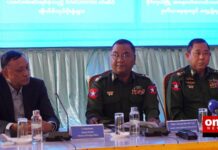





Leave a Comments